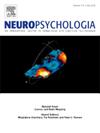老年人愤怒和骄傲的神经网络类似。
IF 2
3区 心理学
Q3 BEHAVIORAL SCIENCES
引用次数: 0
摘要
人们对“基本情绪”背后的神经机制进行了大量研究,但对复杂的社会情绪(如骄傲、尴尬、内疚或羞耻)的研究相对较少。这项研究的目的是调查处理愤怒、喜悦、骄傲和尴尬的神经基础的年龄相关差异,以及与健康指标(如抑郁、焦虑和压力)的可能关联。24名年轻人和25名老年人在观看四种情绪的视频时进行了功能成像,并指出了所表达的情绪。通过多变量分析(偏最小二乘),我们发现老年人对愤怒和骄傲都有一个相似的网络,而年轻人对积极情绪和消极情绪都有两个不同的网络,无论这种情绪是基本的还是社会的。此外,根据抑郁、焦虑、压力量表(DASS-21)的测量,压力得分较高的老年人和抑郁得分较高的年轻人在识别尴尬时激活了类似的大脑网络。这些发现表明,老年人的骄傲和愤怒在情感上都是显著的,需要相似的认知和注意力资源,而年轻人的神经活动是由情绪刺激的效价而不是社会内容调节的。我们的研究结果还强调了在研究复杂的、自我意识的、情绪的神经基础及其与幸福感的关系时考虑年龄的重要性。本文章由计算机程序翻译,如有差异,请以英文原文为准。
Similar neural networks for anger and pride in older adults
There has been a significant amount of research on the neural mechanisms underlying "basic emotions" but relatively less research on complex social emotions like pride, embarrassment, guilt, or shame. The aim of this study was to investigate age-related differences in the neural basis of processing anger, joy, pride, and embarrassment, and possible association with well-being measurements, such as depression, anxiety and stress. Twenty-four younger and twenty-five older adults underwent functional imaging while viewing videos of four emotions and indicating the emotion expressed. Using multivariate analysis (Partial Least Squares), we found that older adults engaged a similar network for both anger and pride, while younger adults recruited two separate networks for positive vs. negative emotions, regardless of whether the emotion was basic or social. Furthermore, older adults with higher stress scores and younger adults with higher depression scores, as measured by the Depression, Anxiety, Stress Scale (DASS-21), activated a similar brain network during recognition of embarrassment. These findings suggest that both pride and anger are emotionally salient and require similar cognitive and attentional resources in older adults, while younger adults’ neural activity is modulated by the valence, rather than the social content of stimuli. Our results also highlight the importance of considering age when studying the neural basis of complex, self-conscious, emotions and their association with well-being measurements.
求助全文
通过发布文献求助,成功后即可免费获取论文全文。
去求助
来源期刊

Neuropsychologia
医学-行为科学
CiteScore
5.10
自引率
3.80%
发文量
228
审稿时长
4 months
期刊介绍:
Neuropsychologia is an international interdisciplinary journal devoted to experimental and theoretical contributions that advance understanding of human cognition and behavior from a neuroscience perspective. The journal will consider for publication studies that link brain function with cognitive processes, including attention and awareness, action and motor control, executive functions and cognitive control, memory, language, and emotion and social cognition.
 求助内容:
求助内容: 应助结果提醒方式:
应助结果提醒方式:


